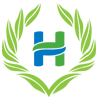Vietnam Seafood
Vietnam and the Netherlands cooperate to build a national brand for a sustainable seafood industry
The event was attended by Ms. Aukje de Vries, Dutch Minister for Foreign Trade and Development Cooperation; Mr. Tran Dinh Luan, Director General of the Directorate of Fisheries and Fisheries Surveillance (Ministry of Agriculture and Environment); Mr. Kees van Baar, Ambassador of the Netherlands to Vietnam; along with leaders of various departments, international organizations, and businesses from both countries.
According to the Dutch Embassy, Vietnam and the Netherlands have maintained a strong and increasingly close relationship, built on trust, respect, and sustainable cooperation.
The two countries have maintained over 50 years of diplomatic relations, more than 400 years of trade history, and over a decade of strategic cooperation through the Strategic Partnership Arrangement (SPA) on Sustainable Agriculture and Food Security and the SPA on Water Management and Climate Change.

These two SPAs form the foundation of bilateral cooperation, enabling strategic, substantive, and effective collaboration across multiple fields.
This cooperation goes beyond theory and is implemented in practice, with clear objectives aligned with Vietnam’s development priorities, especially in the Mekong Delta.
A distinctive feature of the combi-track program is its integrated approach: mobilizing public and private partners to jointly promote sustainable, climate-resilient aquaculture.
The program connects Dutch and Vietnamese stakeholders — from government agencies and businesses to farmers and academia — to jointly develop initiatives that are technically sound, economically viable, and environmentally responsible.
In the long run, the combi-track program will help strengthen youth engagement, promote nature-based solutions, reduce disease and antibiotic use, and create sustainable value for farmers and businesses.
Mr. Tran Dinh Luan, Director General of the Directorate of Fisheries and Fisheries Surveillance, stated: “The TomGoxy® Zero project will bring a breakthrough to Vietnam’s aquaculture sector, revolutionizing shrimp farming through an innovative model that combines mangrove restoration with sustainable aquaculture.”

Vietnamese and Dutch experts proposed development-oriented solutions for Vietnam’s seafood sector in the coming period. Photo: Van Nguyen
The goal is to introduce a profitable shrimp farming model that can be scaled up globally, demonstrating that environmental restoration and commercial aquaculture can indeed advance in parallel.
This strategic cooperation project brings together partners with complementary expertise, allowing each party to leverage its strengths and contribute to the project’s overall success.
TomGoxy® Zero is an innovative system integrating mangrove restoration with super-intensive whiteleg shrimp farming. It uses IoT monitoring and AI-powered data analytics.
Natural water filtration through mangroves eliminates nutrient discharge, restores mangrove ecosystems, and enhances biodiversity.
The system strengthens coastal protection, actively absorbs and stores carbon, enhances environmental impact management, achieves superior operational efficiency, and eliminates antibiotic use.
It offers full traceability, can increase productivity by up to 300%, reduces energy consumption by 75%, and lowers water use by 60%.
Both the Netherlands and Vietnam are delta nations facing similar challenges and opportunities. The two countries are working together to develop smart, integrated solutions to build more sustainable and efficient systems.
Speaking at the forum, Ms. Aukje de Vries emphasized: “Vietnam has transformed into one of the world’s fastest-growing economies, with notable efforts in sustainability and food security. This forum aims to connect and spark ideas so we can continue strengthening public–private partnerships, innovation, and sustainable cooperation to meet global food security needs.”

Delegates attending the conference on “Shaping the future of sustainable aquaculture in the Mekong Delta.” Photo: Van Nguyen
Over the past five years, Vietnam has made remarkable progress in livestock production, with output doubling or tripling thanks to genetic improvements. Aquaculture is a key pillar of global food security.
Dutch experts noted that genetic selection in aquaculture is essential to identify individuals with the strongest disease resistance and lowest risk of early mortality, raising survival rates from 37% to 78%.
Producers must ensure traceability, adopt environmentally friendly feed, and support smallholders in accessing ASC certification.
They also highlighted the need to safeguard animal health, raise awareness among smallholder farmers, and provide more training programs.
Vietnam should encourage more young people to work in cooperatives and promote youth participation. Policies should support cooperatives, including organizing events that showcase their success to inspire broader engagement.
The development of a circular economy should be strengthened, including recycling agricultural by-products and promoting low-emission or net-zero seafood enterprises.
Ms. Natalie Den Breugom-De Haas, Deputy Director of Sustainable Economic Development at the Dutch Ministry of Foreign Affairs, added: “Vietnam needs to build a strong national brand to expand into high-end markets. We will continue to strengthen close cooperation and share knowledge with farming communities to achieve sustainable development goals.”
Source: https://seafood.vasep.com.vn/



 Tiếng Việt
Tiếng Việt